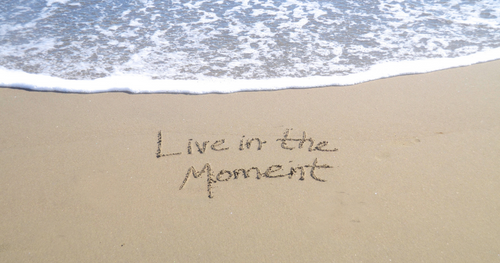People seek self-fulfillment in many ways, sometimes through healthy self-improvement practices. So, what exactly is self-improvement? – It is the act of developing healthy goals, plans, and a mindset to put them into practice. The goal for many is to be their ideal self, so they gain knowledge through personal development guides & books to achieve their highest potential. However, if you lack a certain foundation, these self-help books may not be that helpful long-term.
The satisfaction you have with the direction of your life today may not be the same as you grow. Many people want more from life; therefore, look for ways in which they can improve. Personal improvement is a life-long process and does not necessarily call for the same behavior change in everyone.
The desire for growth is to separate yourself from a stagnant environment. In some cases, thoughts and needs to self-improve often arise when you realize you have been living the same life unfilled and unhappy. When that realization occurs, many people take the wrong personal development approach. This article helps you understand how to approach self-improvement in a meaningful way.
To improve yourself, you have to live your life, not live through it

Ask yourself whether you are cruising through life or living it. This can be as simple as your daily routines. There are certain morning and night rituals that everyone engages in prior to leaving their home. For example, if you have considered your morning routines to be quite tedious, you may not enjoy the process. Therefore, you start the day bored and may carry that same mindset daily.
What does this have to do with self-improvement exactly? – Each aspect of your life plays into self-development. The way you approach everything can set forth other routines. This can also shift your thought process. Instead of simply going through the day, you take control by being present during each thing you do.
Less at a time can be better when it comes to self-improvement
You may want to self-improve in different areas of your life. Practice patience while making self-improvement changes.
Trying to improve every aspect of your life all at once can be counterproductive to your personal goals. When you take the time to set one goal at a time and dedicate your efforts to it, you can easily eliminate pressure, enjoy the process, and be happier through it.
Stay consistent while setting your self-improvement goals
Consistency encourages growth, which is a major element of self-improvement.
If you are looking for a lasting change, you must stay consistent when setting your goals. You can promote consistency by handling a specific goal at a time. You can see whether the goal you are focusing on is the right goal for you by simply dedicating your attention to it.
Learn from your self-improvement process
This is your process and not anyone else’s. There should be no rush; therefore, taking the time to learn while going through the process is essential. Being present allows you to gain knowledge through the process.
The ability to learn from your journey gives you the opportunity to be more self-aware. As you learn more, you can expand your mindset and eliminate the setbacks that refrain you from being your best self.
Let go of self-judgement

Self-improvement is also a mentality. You must remove negative thoughts from your mind when choosing to improve yourself. This process is about you and will require self-compassion and self-love. When you change the perspective you have of yourself, you can better shape the person you want to become.
Physical improvements are not the only things that can make you happy
Remember that self-improvement is not about ‘fixing’ yourself; you are not broken. Improving yourself entails building on what you already have as well as focusing on areas that may need some work.
The journey of self-improvement shapes your future. When you are trying to better yourself, you must focus on yourself. That includes interior elements as well. While changing your self-appearance might be great, it can be unsustainable if you have not accepted yourself. Happiness is a result of true self-love.
Your life is not a checklist
The ultimate goal of improving yourself is to become happier and fulfilled. Treating the whole process as a checklist takes away from that.
Checklists are beneficial and act as motivating tools in life when it pertains to handling tasks. When you treat your whole life as a to-do list, it can have the opposite effect you are looking for. You will be left with the overwhelming feeling of having so much to do by a specific timeframe. It adds stress to your life, which is counterproductive to your self-improvement goals.
You may need to get out of your comfort zone
You need growth to become a better version of yourself. That may require leaving your comfort zone. You are probably scratching your head with this one because being comfortable creates a low-stress, feel-good environment.
Being under less stress does not necessarily mean that you are happier, which is why getting outside of your comfort zone might be necessary. To grow is also to learn to accept your failures and getting out of your comfort zone will teach you just that.
Happiness is not always an immediate feeling in your self-improvement journey
It is important to center yourself during your self-improvement journey, eliminate comparisons, and learn from it all. You will not always be immediately happy once you decide to change yourself. This is a process that takes time and understanding of oneself.
Keep in mind that being better does not mean being perfect. As a human being, you will always want to strive for the next best thing, but do it in a healthy manner, or else, it develops into an obsession. Seeking perfection robs you of your self-help process and the happiness you can obtain from it.
Building personal relationships is also part of self-improvement
Yes, there is a ‘self’ in self-improvement, but your surroundings can also play a role in this journey. There is such a thing as over-optimizing. Moderation is important when it comes to self-improvement. As you grow in life, so will your expectations, but that does not need to take away from your relationship with others.
While you work on personal growth and shut yourself away from others while doing so, you are denying yourself of two important things. The first is learning from your surroundings and the second is seeing how the improvements you have made reflect outwardly while you are with others.
Relaxation is also self-improvement

There are a lot of factors outside of your control that can affect your mood. However, your personal choices can change the trajectory of your life and make you happier long-term.
There is a belief that resting takes away from your productivity and self-growth. Ask yourself how exactly you are improving when you guilt-trip yourself into being constantly productive. This mentality can impede your self-growth. Although you may achieve your goals, you can experience life dissatisfaction without prioritizing rest.
Put your self-improvement plans into action
Being self-aware and making plans is important in your self-improvement journey but putting those plans into action is key. You may already know what needs to be done and possibly have read a plethora of self-help books along the way, but without putting it into practice, you are unfortunately not self-improving.
Rumination can ruin your self-help process
Are you constantly stuck in a state of negative intrusive thoughts when it concerns your self-improvement? – this can be known as rumination and it stalls growth for many reasons. While rumination can be linked to mental conditions, such as anxiety and depression, it can also occur as a result of low self-esteem. Adopting ways to improve your self-esteem can help with ruminating thoughts.





Leave a Reply